News
KUBS News
The Future of Corporations Proposed by Youth: The 2nd Corporate Governance Competition Concludes Successfully
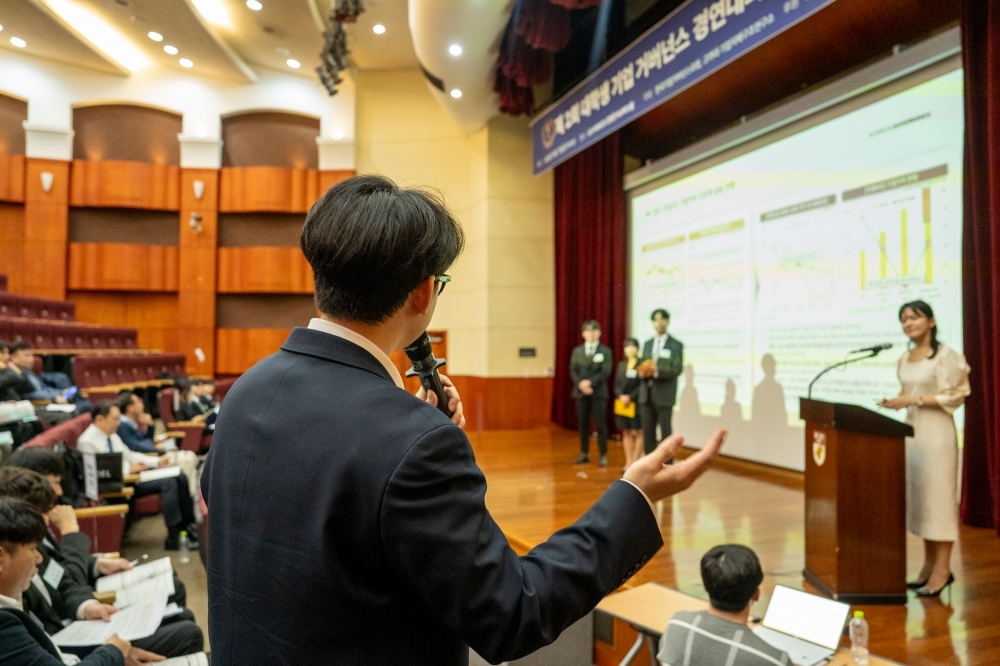
On Friday, November 7, the finals and awards ceremony of the National University Student Corporate Governance Competition, hosted by the Korea Corporate Governance Forum and the Korea University Asian Institute of Corporate Governance, took place at Supex Hall in the LG-POSCO Building at Korea University. Designed to encourage university students’ interest in corporate governance issues and foster creative discussions and proposals, the competition marked its second year. With even greater enthusiasm and participation than last year, a total of five teams advanced to the finals and delivered highly competitive presentations.
The event was moderated by announcer Doeun Yeo, and the judging panel consisted of Namuh Rhee, President of the Korea Corporate Governance Forum; Joonbum Cheon, attorney and CEO of Wise Forest; Hyeseop Sim, attorney; and Hyung-Kyoon Kim, Managing Director at Tcha Partners Asset Management.
Before the team presentations, Woochan Kim, Director of the Korea University Asian Institute of Corporate Governance, expressed his appreciation to all participating students and introduced the six judging criteria: (1) basic understanding of corporate governance, (2) sufficient research on factual matters, (3) creativity, rationality, and validity of conclusions, (4) understanding of corporate boards, (5) quality of responses during the Q&A, and (6) overall presentation.
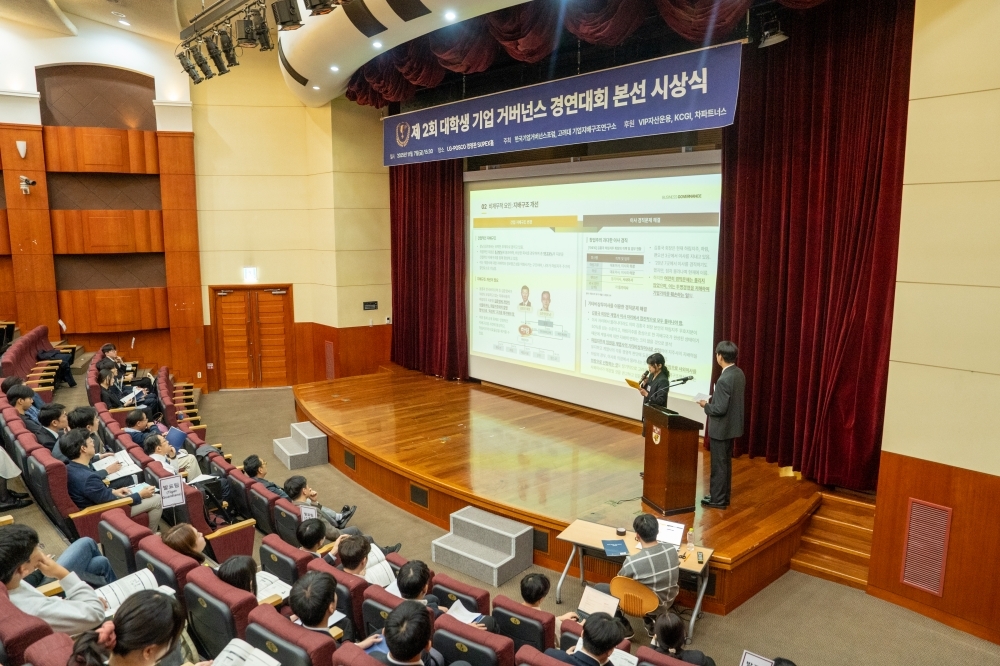
The first team to present, Hoan Tteul Gaemideul (The Riverbank Ants) delivered a presentation titled “A Plan to Enhance the Corporate Value of Harim Holdings,” based on their analysis of the company’s corporate governance structure and financial condition. They categorized the causes of Harim Holdings’ undervaluation into financial, non-financial, and shareholder-return factors, and proposed a creative solution to strengthen shareholder return capacity by introducing a dividend expansion strategy that reflects the revised dividend income separation taxation system.
The team “Next Value Initiative” presented “Improvement Measures to Enhance Shareholder Value at KUMHO E&C,” analyzing the company’s governance-related constraints and the resulting market valuation imbalance. They identified the core risks as: (1) unfair support for controlling shareholders, (2) inconsistent shareholder return policies, (3) lack of independence in the board and audit bodies, and (4) insufficient minority shareholder protection mechanisms.
They also proposed corresponding solutions and emphasized that KUMHO E&C, which has long functioned as a buffer absorbing controlling-shareholder risks, should shift toward becoming a company that serves all shareholders.
Next, the team “Stewardship” delivered a presentation titled “Enhancing Shareholder Value at HYOSUNG: Governance Improvements Through Board Reform.” Focusing on issues arising from owner-family risks, they highlighted the remaining challenges despite previous improvement efforts and proposed a multifaceted set of solutions, including increasing shareholder return rates, mitigating information asymmetry for shareholders, and strengthening board independence.
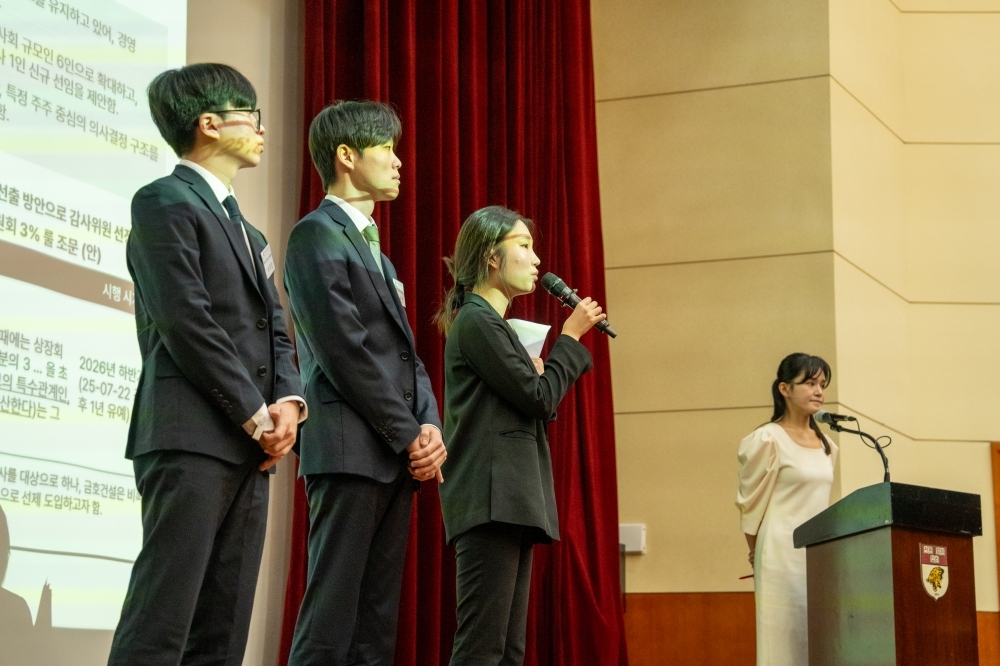
The team “Gwanaksan Raccoons” delivered a presentation titled “Nongshim: Taking Flight Through Corporate Governance Reform,” outlining improvement measures derived from their analysis of the Nongshim Group’s governance structure. They estimated the incentives and scale of intra-group tunneling and proposed converting Nongshim and Youlchon Chemical into subsidiaries as a means of reducing private benefit extraction.
Lastly, the team “Tiger Guardians” delivered a presentation titled “Enhancing Corporate Value Through Governance Improvements at Youngone Corporation.” They identified issues such as the company’s dual-listing structure, unfair internal transactions, and the lack of transparency in executive compensation, and proposed practical solutions to address each of these factors.
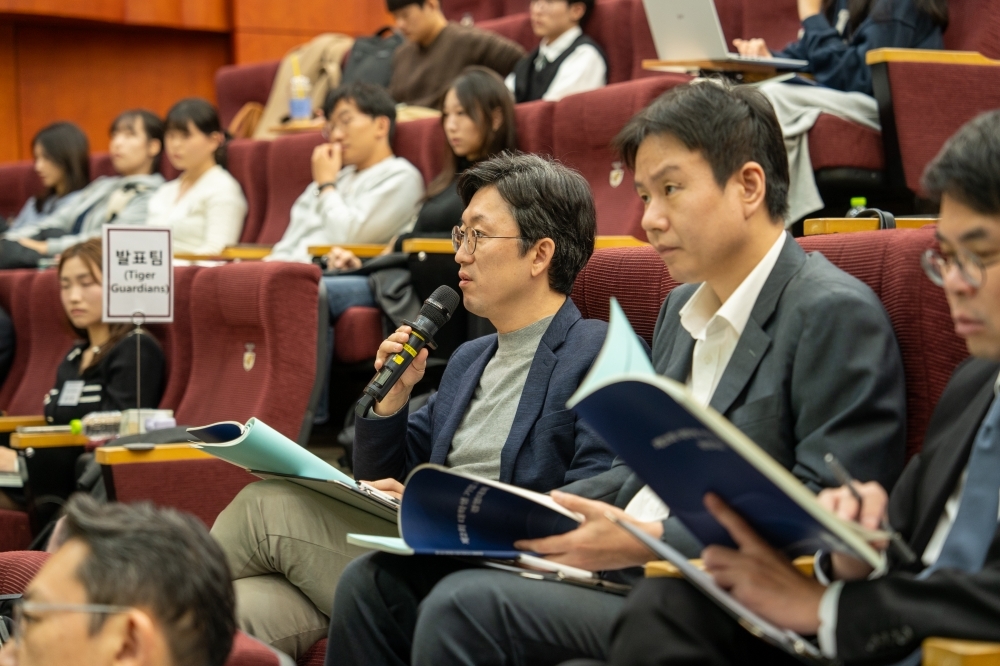
After all team presentations concluded, the results were announced. The team “Gwanaksan Raccoons” won first place, “Hoarding Ants in the Garden” and “Tiger Guardians” tied for second place, and “Next Value Initiative” and “Stewardship” shared third place. Chairman Namuh Rhee remarked, “The presentation content was excellent, but I was particularly impressed by the students’ confidence on stage. Their understanding of the Commercial Act amendments was also noteworthy.” He added, “If precise stock valuation and analyses of domestic and global competitors were conducted together, even stronger results could be produced.”
Sunghoon Kim (Business School, Seoul National University), a member of the winning team “Gwanaksan Raccoons,” said, “While preparing for this competition, I realized that many companies in Korea still have weak governance structures. Nevertheless, I believe there is ample room for improvement, as companies with strong governance clearly receive better evaluations in the stock market.” He added, “Although the preparation process was not easy, it was deeply rewarding, and I feel a strong sense of accomplishment knowing that the measures we proposed could potentially contribute to real corporate change.” He also encouraged other students to participate in the corporate governance competition.
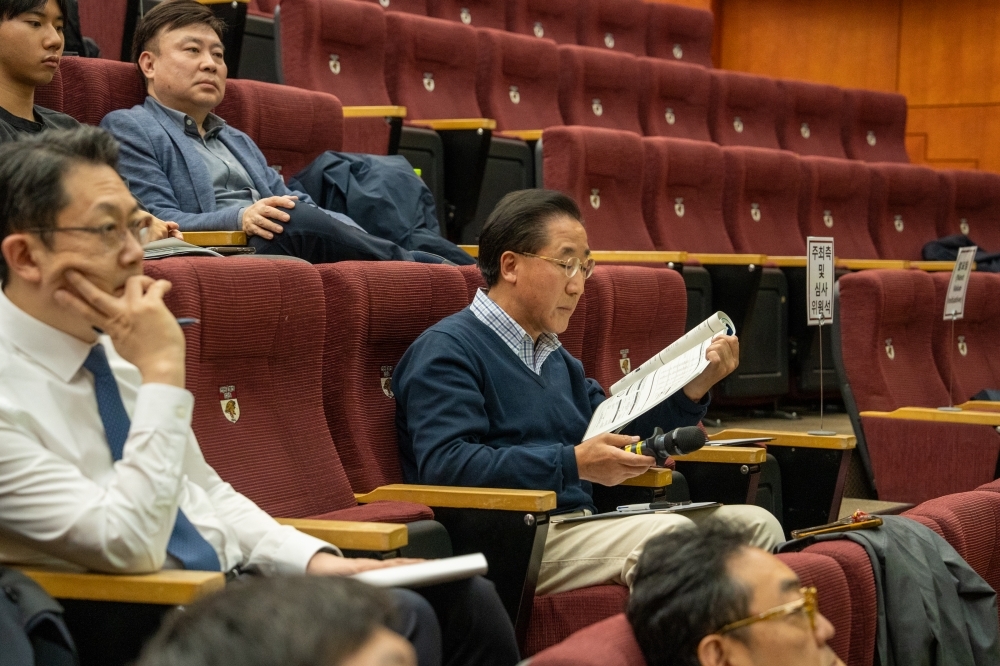
This competition holds significant meaning as it enables the younger generation to directly analyze corporate governance issues and grow into key contributors to building a healthier corporate ecosystem. The Korea University Corporate Governance Research Institute plans to continue offering practical learning opportunities that go beyond academic research, allowing university students to gain firsthand experience with real corporate environments and the importance of social responsibility. Furthermore, through continued collaboration with the Korea Corporate Governance Forum, the institute aims to support the development of young talents who will lead the advancement of corporate transparency and sustainability in the future.


